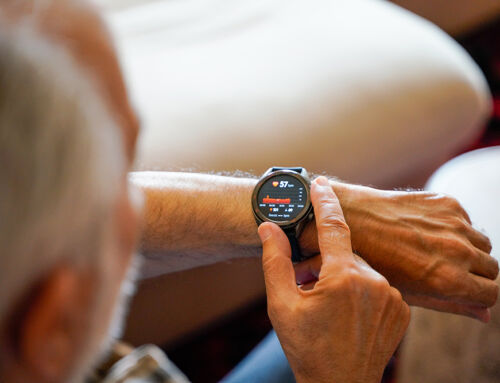Heart-Healthy Tips for Seniors
While there’s a lot that goes into having a healthy heart, two things remain constant: a healthy diet and regular exercise. Yet there’s much more that you can do. Dr. Marc Gillinov, department chair of thoracic and cardiovascular surgery at the renowned Cleveland Clinic, offers tips you can do every day to help keep your heart in good shape.
Stay away from trans fats.
The Mayo Clinic calls trans fats “double trouble” for your heart. Trans fats increase your bad cholesterol (LDL) and lower your good cholesterol (HDL). But what exactly is trans fat? The Mayo Clinic says it’s “fat formed through an industrial process that adds hydrogen to vegetable oil, which causes the oil to become solid at room temperature.” You’ll find trans fat in packaged baked goods, snack foods, margarines and fried fast foods. They increase the risk for heart attacks, stroke and type 2 diabetes, and are bad for cholesterol levels.
TIP: Read the label on all foods. Trans fat will appear as “partially hydrogenated oil.” Says Dr. Gillinov, “Look for 0 percent trans fat.” If you’re eating out, avoid the foods notorious for trans fats. Rule of thumb: always opt for saturated, polyunsaturated and unsaturated fats in such foods as avocados, nuts, seeds and olive oil.
Brush and floss daily.
Did you know that individuals with periodontal (gum) disease often have the same risk factors for heart disease? That’s because bacteria in the mouth can move into the bloodstream and raise a certain protein that’s a marker for inflammation—which can increase your risk of heart disease and stroke.
TIP: Brush and floss every day to keep gum disease at bay.
Sleep!
It’s important that your body get enough rest every day. In fact, if you don’t get sufficient sleep, you put yourself at higher risk for cardiovascular disease no matter your age or health habits. According to Dr. Gillinov, “One study looking at 3,000 adults over the age of 45 found that those who slept fewer than six hours per night were about twice as likely to have a stroke or heart attack as people who slept six to eight hours per night.” Lack of sleep can also adversely affect increase blood pressure and inflammation.
TIP: Get seven to eight hours of sleep most nights. If you snore and have sleep apnea, speak to your doctor about a CPAP device, as this condition is linked to heart disease and arrhythmias.
Stand up!
Sitting too long at a time is bad for your health, no matter how much you exercise. One study showed that staying seated for long periods increases your risk of cardiovascular events and death, in addition to your risk of blood clots.
TIP: Keep moving! Get yourself a Fitbit or other activity tracker that alerts you to get up and walk if you’ve been seated too long. Take short walks throughout the day. And don’t forget to exercise on most days, too. One of the best ways to be active is to join a group exercise class at Summit Pointe, or take a stroll around the grounds. Get a friend to join you!
Here’s to a healthy heart—and a healthy you!




